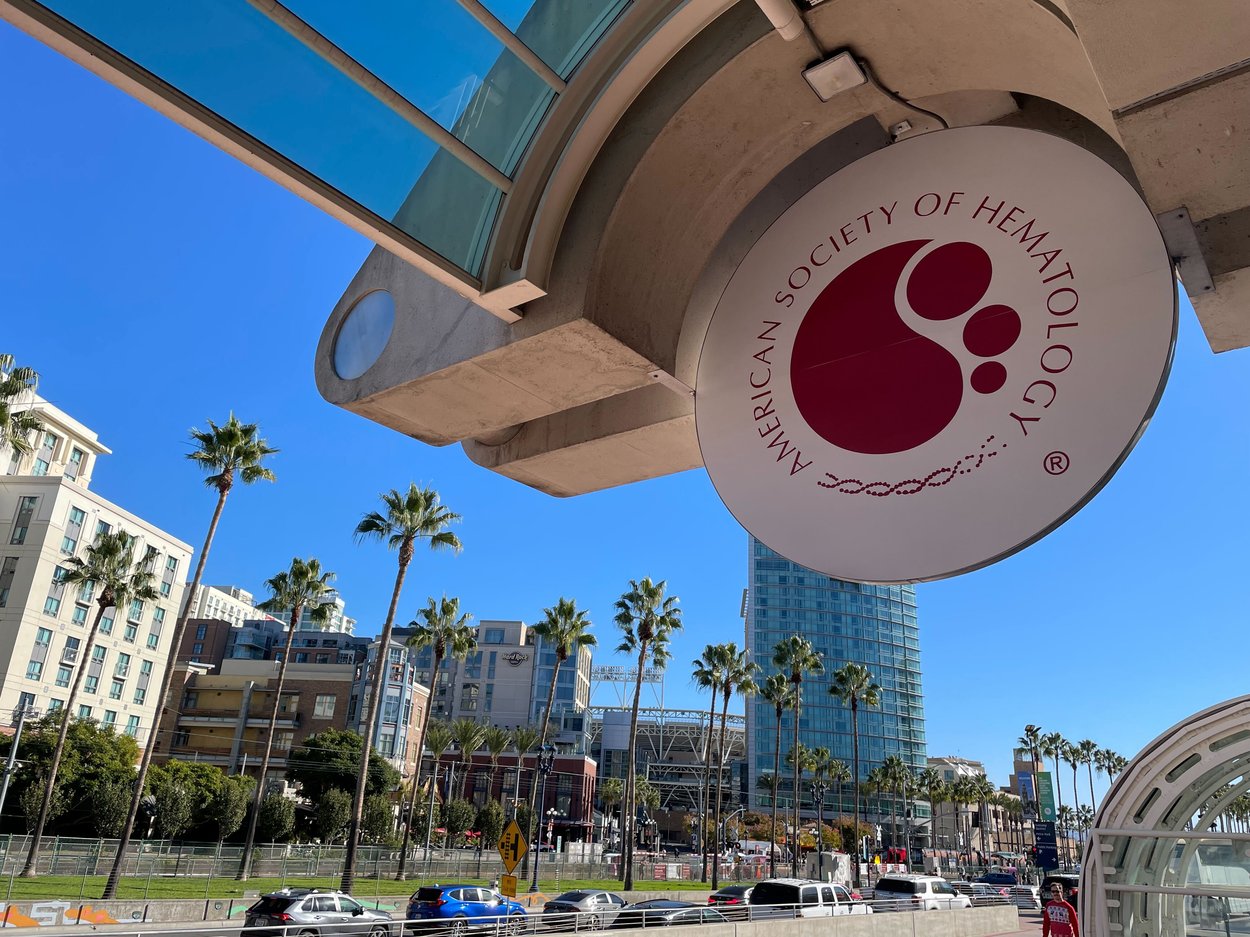
research
Real-world effectiveness of multiple myeloma drugs lags far behind what researchers observe in trials
Doctors often rely on clinical trial data when talking to patients about the benefits of a therapy. But it's an open secret that new medicines seldom work as well in the real world as they did in the trials used to support a therapy's approval. Researchers even use two different words to describe a drug's performance, often referring to a drug's efficacy in clinical trials versus its effectiveness in routine health care settings.
A team of Canadian researchers wanted to understand how wide the efficacy-effectiveness gap was for therapies that treat multiple myeloma, a rare disorder in which cancerous antibody-producing immune cells build up in the bone marrow. So they analyzed the effectiveness of current standard-of-care regimens used to treat both newly diagnosed and relapsed-refractory multiple myeloma, relying on numbers from the Institute for Clinical Evaluative Science, a non-profit that has a repository of health records for as many as 13 million people in Ontario. They found that, for six of seven standard-of care regimens, median overall survival and progression-free survival were up to 18 and 38 months longer in clinical trials than in the real world, respectively, based on data from patients diagnosed between 2007 and 2020.
Scientists behind the analysis say their findings underscore the importance of making clinical trials more inclusive and convenient for patients so that the way drugs are tested isn't so different from how they're actually used. And the research team is now planning follow-up analyses to understand what factors explain the efficacy-effectiveness gap.
"These real-world studies on effectiveness are going to become increasingly relevant, especially as we evaluate complex treatments such as immunotherapies that are associated with significant toxicities and financial burden," said Alissa Visram of the Ottawa Hospital Research Institute, lead researcher behind the work.
Car-t
CAR-T therapy shows 100% efficacy in three autoimmune diseases in small trial
Researchers at University Hospital Erlangen and Friedrich Alexander University Erlangen-Nuremberg in Germany have now treated 15 autoimmune disease patients with CD19 directed CAR-T cells. That includes eight patients with lupus, four with systemic sclerosis, and three with inflammatory myositis. So far, all of them have gone into complete remission, said Fabian Müller, a hematologist-oncologist at University Hospital Erlangen and lead author on the abstract.
"Everybody responded. For all of them, it's durable at this point," Müller said. "They are all treatment-free in remission. It's incredible. They're like, 'My life is awesome.' No toxicity. It's very cool."
The longest remission is in a patient with lupus, who has been free of symptoms and medications for 31 months, Müller said. However, it's still unclear how long that will last, he added, so longer-term follow-up as well as more study is needed to better understand the impact of these therapies in autoimmune conditions.
The work is also helping to elucidate new biology around some of these autoimmune diseases, said PJ Utz, a rheumatologist and immunologist at Stanford University who did not work on the study. For one, B cells aren't thought to play a driving role in some autoimmune conditions, so one would assume CAR-T therapy wouldn't work as effectively there. That includes sclerosis, Utz said, but the therapy seemed to still achieve remissions. "There are some diseases like lupus where the B cell and autoantibody are playing a very important role," he said. "What's surprising here is autoantibodies are not shown to be pathogenic in systemic sclerosis for the most part. Same with inflammatory myositis. I think this is going to teach us a lot about the role of B cells."
Read more.
SICKLE CELL
New data reinforce hopes that Bluebird Bio's sickle cell therapy offers lasting benefits
Bluebird Bio has had a busy 24 hours, to say the least. Yesterday, the Food and Drug Administration approved the company's gene therapy for sickle cell disease, Lyfgenia. And during a press briefing this morning, researchers presented fresh data that lent some support to the idea the drug could be a lasting fix for patients.
The results come from 47 patients across studies, 36 of whom were in HGB-206, the Phase 1/2 study the company used to apply for approval, and 11 of whom were in the Phase 3 study HGB-210. The company's therapy uses a virus to slip a gene inside a patient's blood stem cells that allows them to produce a version of hemoglobin that does not cause red blood cells to misshapen into crescents that can clog blood vessels. Researchers showed that this version of hemoglobin accounted for 40% or more of a patient's total hemoglobin among participants who were monitored for up to 60 months, with a median follow-up of about 36 months.
And when scientists focused on 34 patients, they found that 32 of them did not have any so-called severe vaso-occlusive events, acute and debilitating pain crises, during six to 18 months of follow-up after infusion of the therapy, whereas these patients had typically experienced around three such episodes a year prior to treatment. Along similar lines, when researchers asked patients about the intensity of their pain, how much it interfered with their daily lives, and how tired they felt, they found that Lyfgenia significantly improved all of these measures in participants monitored for up to 48 months.
"[We're] very excited about these outcomes, which really demonstrate what is important to those individuals living with sickle cell," said Julie Kanter, director of the University of Alabama at Birmingham's adult sickle cell disease program.






No comments